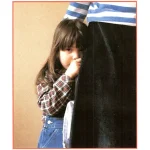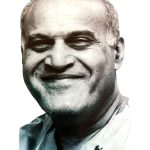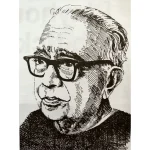Younis Mohammed Noor, born in Deira, Dubai in 1944, reminisced about the good old days when life was about close ties, emotional bonds, warmth and bonhomie and less about fast-lane careers and opulent lifestyles. He started attending Al Qassimiya School in Sharjah around the age of 10 and recalled that the daunting task of the day was to travel from Dubai to Sharjah which could take hours on a good day and, if the weather was bad, meant not going at all. “Water came on donkey carriers and later in vehicles; what stands out about my childhood is that everyone was very happy – relationships had value”. Intimate ties, rather than money, held social fabric together. “We would help to build small dhows and go to sea and fish and come home to cook the catch”, he said.

After Younis finished high school in Dubai, he went to Jordan University to study English literature and realised that the world was changing and people became more modern in their outlook. His initial choice was to study medicine but as he did not get a scholarship in this subject, he decided to choose English literature as it is such a rich subject.
Younis returned in 1973 to a country that had discovered oil and where everything started to change dramatically – from the development of infrastructure to the influx of expatriates. He joined the Ministry of Foreign Affairs where he worked for 26 years. “My country was born in December 1971 and I was selected to represent the UAE to the world. It was a huge responsibility and I was very lucky to have had this opportunity. I represented my country in Iran, Syria, Jordan, Geneva, New Delhi, South Korea and New York. It was a wonderful experience since the UAE was developing very fast and trying to ensure that there was no impediment that hampered its progress.”

Younis believed that being a diplomat means that you are constantly analysing problems the world over and deducing what effect it has on the position of your country which made diplomacy a fascinating profession to work in. Younis recalls he was posted in South Korea when Iraq invaded Kuwait in 1990. “There were some Kuwaitis in South Korea who were cut off from their country and, as they had no mission there, we took them in and looked after them. They had come to represent their country in an international sporting fixture and suddenly, on 2 August 1990, the invasion took place and they were stranded. We never dreamt that an Arab nation would invade a brother country. It devasted everyone.”
Younis emphasises that the credit had to be given to the government of the UAE, both local and federal, for the commitment and dedication they showed the people and their development. The vision and plan for the country had paid great dividends. The result, he points out, is a younger generation that is smart, educated and has a bright future. Both Younis’ sons Raed and Shihab studied computer science and IT in the US.
After many years spent outside the UAE, Younis came home and joined the National Bank of Dubai. Yousuf admits that he observed that the value structure had started to erode. “However”, he concedes, “we have to accept that every period of time has its own values. Also, the influx of so many expatriates has changed the structure of the society.”
Younis continues, “We are a peaceful nation with a policy to maintain good relations with our neighbours. The women have played an excellent role and shared the burden with the men. We often feel alarmed when we look at the younger generation but we must not judge them too harshly. We made huge strides ourselves and I am sure that they will do even better.” An articulate blessing and prognosis that comes from the heart of someone who has seen the efforts of his contemporaries who literally built a country brick by brick.




